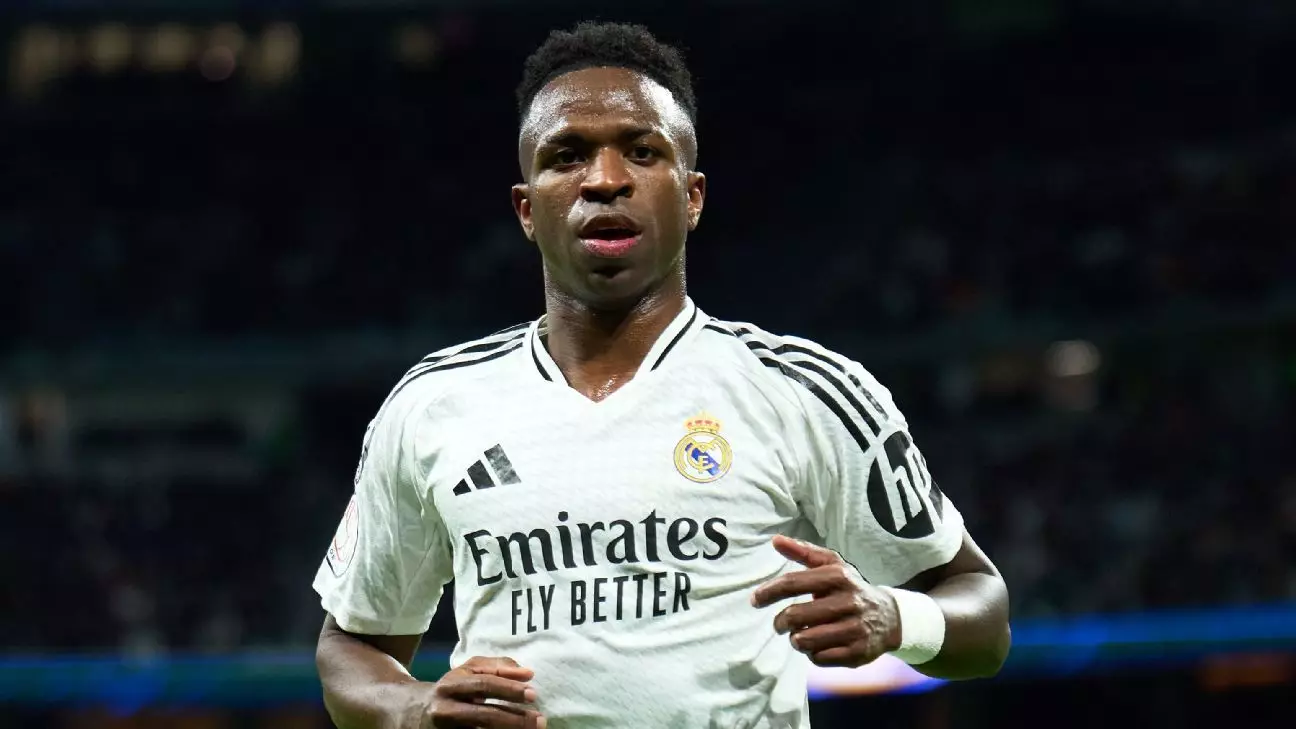As football clubs around the world engage in the complex and often speculative dance of player transfers, the interest from Saudi Arabia’s Public Investment Fund (PIF) in Real Madrid’s Vinícius Júnior has created a buzz that is impossible to ignore. Reports from reputable sources, such as ESPN, indicate that the PIF has been consistent in its attempts to initiate discussions over the Brazilian forward. The enduring nature of these negotiations raises critical questions about the motivations behind mega deals and their implications for the sport.
Vinícius Júnior’s meteoric rise to prominence in European football has been marked by his performance on the pitch. Last season, he played a pivotal role in Real Madrid’s success, helping the club secure both domestic and international titles. His accolades, including the FIFA The Best men’s player award, underscore the value he brings to any team. In a transfer market that increasingly favors star athletes, his profile is likely to attract lucrative offers, and the Saudi PIF’s overtures demonstrate an aggressive pursuit of global talent.
The financial clout of the Saudi PIF cannot be overstated. With reports suggesting potential annual salaries reaching up to €350 million, it presents a compelling case for players weighing their options. However, loyalty and personal ambition also play crucial roles in a player’s decision-making process. While Vinícius has not outright dismissed the Saudi interest, a deal requires Real Madrid’s acceptance of a fee lower than his hefty €1 billion release clause. This stipulation highlights the delicate balance of negotiating power that clubs and players must navigate in today’s footballing landscape.
The Saudi Pro League’s strategy to bolster its reputation through high-profile signings like Vinícius signifies a broader movement in football economics. By attracting elite talent, the league aims to elevate its status on the global stage. Such pursuits not only reshape team compositions but also challenge traditional power dynamics within European football. With high-profile players like Cristiano Ronaldo and Karim Benzema already making headlines in the league, Vinícius’ potential arrival could serve as a catalyst for further organizational ambition within the Saudi clubs.
As talks between Vinícius Júnior’s representatives and the Saudi PIF unfold, the future remains uncertain. The implications of a possible transfer extend far beyond the financial aspects; they speak to the evolving narrative of where talent flows in the modern game. Players increasingly find themselves at the intersection of financial incentives, career aspirations, and cultural considerations. Ultimately, whether Vinícius chooses to remain at Real Madrid or explore the riches offered by the Saudi Pro League may set a precedent for future transfers, perhaps ushering in an era of unprecedented player mobility in the sport.

